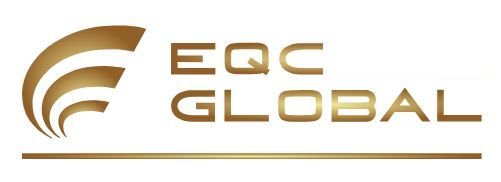Understanding Product Certification: Process, Types and Benefits

Product Certification
What is Product Certification?
Product certification is a systematic process that verifies and validates the safety, quality, and performance of products against predefined standards and criteria. This certification serves as an assurance to consumers that a product has been rigorously tested and meets specific industry requirements. In various sectors, such as electronics, automotive, and healthcare, product certification plays a crucial role in instilling public confidence and compliance with regulations.
At its core, product certification involves a comprehensive evaluation process, which may include inspections, testing, and auditing by recognized certifying bodies. These bodies evaluate the product against local and international standards, ensuring that manufacturers are adhering to quality assurance protocols. As a result, certification not only safeguards consumer interests but also reinforces the reputation of the manufacturing entity within competitive markets.
Manufacturers pursue product certification for multiple reasons, primarily centered on market access and consumer trust. Many countries stipulate mandatory certifications for products to ensure they comply with safety standards, thus enabling market entry. Furthermore, a certified product often garners greater consumer trust, as buyers tend to favor items that display credible quality marks. This trust can translate into increased sales and customer loyalty, making certification a strategic business necessity.
Additionally, the regulatory landscape surrounding product certification varies significantly across regions, impacting global trade dynamics. Different countries have their own certification bodies and standards, which can complicate the process for manufacturers seeking to export their products. Harmonization of standards and mutual recognition agreements are efforts made to streamline certification processes, allowing for smoother international business practices. Overall, understanding product certification is essential for both manufacturers and consumers, as it plays a vital role in ensuring product integrity and safety across global markets.

Product Safety Standards
Types of Product Certifications
Product certifications play a critical role in ensuring that products meet established standards of quality, safety, and performance. There are several types of product certifications, each tailored to different sectors and regulatory requirements. Understanding these certifications is essential for manufacturers and consumers alike.
One of the most recognized certifications is the CE marking, which is mandatory for products sold within the European Economic Area. The CE marking indicates that a product complies with EU legislation regarding health, safety, and environmental protection. This certification is crucial for consumer electronics, machinery, and medical devices, as it signifies that the product has undergone rigorous testing and meets specific EU directives.
The Organic certification is vital for agricultural products. It ensures that products are grown and processed without synthetic fertilizers, pesticides, or genetically modified organisms (GMOs). This certification is instrumental for consumers seeking organic options and promotes sustainable farming practices.
Additionally, certifications such as FDA approval for food and drug products ensure safety and efficacy prior to market release. Each certification carries distinct standards and testing requirements, issued by recognized organizations that oversee specific sectors. Understanding these certifications not only aids manufacturers in complying with regulations but also enhances consumer trust in the products they purchase.
The Product Certification Process
The product certification process is essential for ensuring that products meet specific standards and regulations before they are brought to market. This process typically begins with initial product testing and analysis. During this stage, manufacturers must prepare their products for testing, ensuring that they meet the relevant criteria established by the certification bodies. Various factors will be taken into consideration, including safety, performance, and environmental impact. Identifying the appropriate standards applicable to the product is crucial as it guides manufacturers in preparing their products for testing.
Following initial testing, documentation plays a vital role in the certification process. Manufacturers must compile detailed records of the test results, technical specifications, and compliance with applicable regulations. This documentation acts as evidence that supports the claims made about the product’s safety, quality, and adherence to industry standards. It is advisable for manufacturers to engage with experts or consultants knowledgeable in product certification to streamline this process and ensure that all necessary documentation is meticulously prepared.
Once the initial testing and documentation are complete, the certification bodies will conduct their assessment. This may include additional tests to verify that the product meets all required standards. The role of these certification bodies is critical, as they provide an independent review of the product, ensuring compliance with regulatory requirements. After thorough evaluation and successful completion of the testing phases, the certification body will issue the final certification, allowing the product to be marketed legally.
In some cases, periodic audits or retesting may be required to maintain certification, reinforcing the importance of ongoing compliance. Manufacturers are encouraged to remain proactive throughout the certification process by understanding the requirements, preparing adequately for testing, and maintaining open communication with the certification bodies.

Inspection
Benefits of Product Certification
Obtaining product certification brings a wealth of advantages to manufacturers, retailers, and consumers alike. One of the most significant benefits is enhanced product credibility. A certified product indicates that it conforms to specific standards and regulations, thereby assuring potential customers of its quality and safety. This level of assurance is particularly crucial in competitive markets, where consumers are increasingly discerning about the products they choose to purchase. When products are certified, they benefit from improved market access as many retailers prefer to stock items that meet established standards to reduce the risk associated with inferior products.
For manufacturers, product certification can lead to a competitive advantage. Brands that are certified can differentiate themselves from their non-certified counterparts, making their products more appealing to consumers who prioritize quality and safety. This distinction not only fosters customer loyalty but also enables manufacturers to justify premium pricing, thus potentially increasing their profit margins. Additionally, certification often accompanies compliance with legal requirements, which is vital in avoiding potential liabilities and legal issues that could arise from selling unsafe or substandard products.
Moreover, certification enhances customer trust and satisfaction. Consumers are more likely to purchase products that they know have been tested and verified by an independent third party. This trust translates into positive consumer behavior, as satisfied customers can become brand advocates, recommending certified products to others and contributing to increased sales.
In today’s marketplace, where consumers have access to an array of choices, the value of product certification cannot be overstated. It not only affirms the product’s integrity but also fosters a safe and reliable consumer environment, benefiting all parties involved. The proactive embrace of product certification can thus serve as an essential strategy for brands aiming to thrive in a competitive landscape.
How Can We Assist You?
Would you like to learn more about our services? Feel free to contact us today!
If you’re interested in professional certification, we’d be happy to provide you with an excellent price offer.
Understanding Product Certification: Process, Types and Benefits

Product Certification
What is Product Certification?
Product certification is a systematic process that verifies and validates the safety, quality, and performance of products against predefined standards and criteria. This certification serves as an assurance to consumers that a product has been rigorously tested and meets specific industry requirements. In various sectors, such as electronics, automotive, and healthcare, product certification plays a crucial role in instilling public confidence and compliance with regulations.
At its core, product certification involves a comprehensive evaluation process, which may include inspections, testing, and auditing by recognized certifying bodies. These bodies evaluate the product against local and international standards, ensuring that manufacturers are adhering to quality assurance protocols. As a result, certification not only safeguards consumer interests but also reinforces the reputation of the manufacturing entity within competitive markets.
Manufacturers pursue product certification for multiple reasons, primarily centered on market access and consumer trust. Many countries stipulate mandatory certifications for products to ensure they comply with safety standards, thus enabling market entry. Furthermore, a certified product often garners greater consumer trust, as buyers tend to favor items that display credible quality marks. This trust can translate into increased sales and customer loyalty, making certification a strategic business necessity.
Additionally, the regulatory landscape surrounding product certification varies significantly across regions, impacting global trade dynamics. Different countries have their own certification bodies and standards, which can complicate the process for manufacturers seeking to export their products. Harmonization of standards and mutual recognition agreements are efforts made to streamline certification processes, allowing for smoother international business practices. Overall, understanding product certification is essential for both manufacturers and consumers, as it plays a vital role in ensuring product integrity and safety across global markets.

Product Safety Standards
Types of Product Certifications
Product certifications play a critical role in ensuring that products meet established standards of quality, safety, and performance. There are several types of product certifications, each tailored to different sectors and regulatory requirements. Understanding these certifications is essential for manufacturers and consumers alike.
One of the most recognized certifications is the CE marking, which is mandatory for products sold within the European Economic Area. The CE marking indicates that a product complies with EU legislation regarding health, safety, and environmental protection. This certification is crucial for consumer electronics, machinery, and medical devices, as it signifies that the product has undergone rigorous testing and meets specific EU directives.
The Organic certification is vital for agricultural products. It ensures that products are grown and processed without synthetic fertilizers, pesticides, or genetically modified organisms (GMOs). This certification is instrumental for consumers seeking organic options and promotes sustainable farming practices.
Additionally, certifications such as FDA approval for food and drug products ensure safety and efficacy prior to market release. Each certification carries distinct standards and testing requirements, issued by recognized organizations that oversee specific sectors. Understanding these certifications not only aids manufacturers in complying with regulations but also enhances consumer trust in the products they purchase.
The Product Certification Process
The product certification process is essential for ensuring that products meet specific standards and regulations before they are brought to market. This process typically begins with initial product testing and analysis. During this stage, manufacturers must prepare their products for testing, ensuring that they meet the relevant criteria established by the certification bodies. Various factors will be taken into consideration, including safety, performance, and environmental impact. Identifying the appropriate standards applicable to the product is crucial as it guides manufacturers in preparing their products for testing.
Following initial testing, documentation plays a vital role in the certification process. Manufacturers must compile detailed records of the test results, technical specifications, and compliance with applicable regulations. This documentation acts as evidence that supports the claims made about the product’s safety, quality, and adherence to industry standards. It is advisable for manufacturers to engage with experts or consultants knowledgeable in product certification to streamline this process and ensure that all necessary documentation is meticulously prepared.
Once the initial testing and documentation are complete, the certification bodies will conduct their assessment. This may include additional tests to verify that the product meets all required standards. The role of these certification bodies is critical, as they provide an independent review of the product, ensuring compliance with regulatory requirements. After thorough evaluation and successful completion of the testing phases, the certification body will issue the final certification, allowing the product to be marketed legally.
In some cases, periodic audits or retesting may be required to maintain certification, reinforcing the importance of ongoing compliance. Manufacturers are encouraged to remain proactive throughout the certification process by understanding the requirements, preparing adequately for testing, and maintaining open communication with the certification bodies.

Inspection
Benefits of Product Certification
Obtaining product certification brings a wealth of advantages to manufacturers, retailers, and consumers alike. One of the most significant benefits is enhanced product credibility. A certified product indicates that it conforms to specific standards and regulations, thereby assuring potential customers of its quality and safety. This level of assurance is particularly crucial in competitive markets, where consumers are increasingly discerning about the products they choose to purchase. When products are certified, they benefit from improved market access as many retailers prefer to stock items that meet established standards to reduce the risk associated with inferior products.
For manufacturers, product certification can lead to a competitive advantage. Brands that are certified can differentiate themselves from their non-certified counterparts, making their products more appealing to consumers who prioritize quality and safety. This distinction not only fosters customer loyalty but also enables manufacturers to justify premium pricing, thus potentially increasing their profit margins. Additionally, certification often accompanies compliance with legal requirements, which is vital in avoiding potential liabilities and legal issues that could arise from selling unsafe or substandard products.
Moreover, certification enhances customer trust and satisfaction. Consumers are more likely to purchase products that they know have been tested and verified by an independent third party. This trust translates into positive consumer behavior, as satisfied customers can become brand advocates, recommending certified products to others and contributing to increased sales.
In today’s marketplace, where consumers have access to an array of choices, the value of product certification cannot be overstated. It not only affirms the product’s integrity but also fosters a safe and reliable consumer environment, benefiting all parties involved. The proactive embrace of product certification can thus serve as an essential strategy for brands aiming to thrive in a competitive landscape.
How Can We Assist You?
Would you like to learn more about our services? Feel free to contact us today!
If you’re interested in professional certification, we’d be happy to provide you with an excellent price offer.

